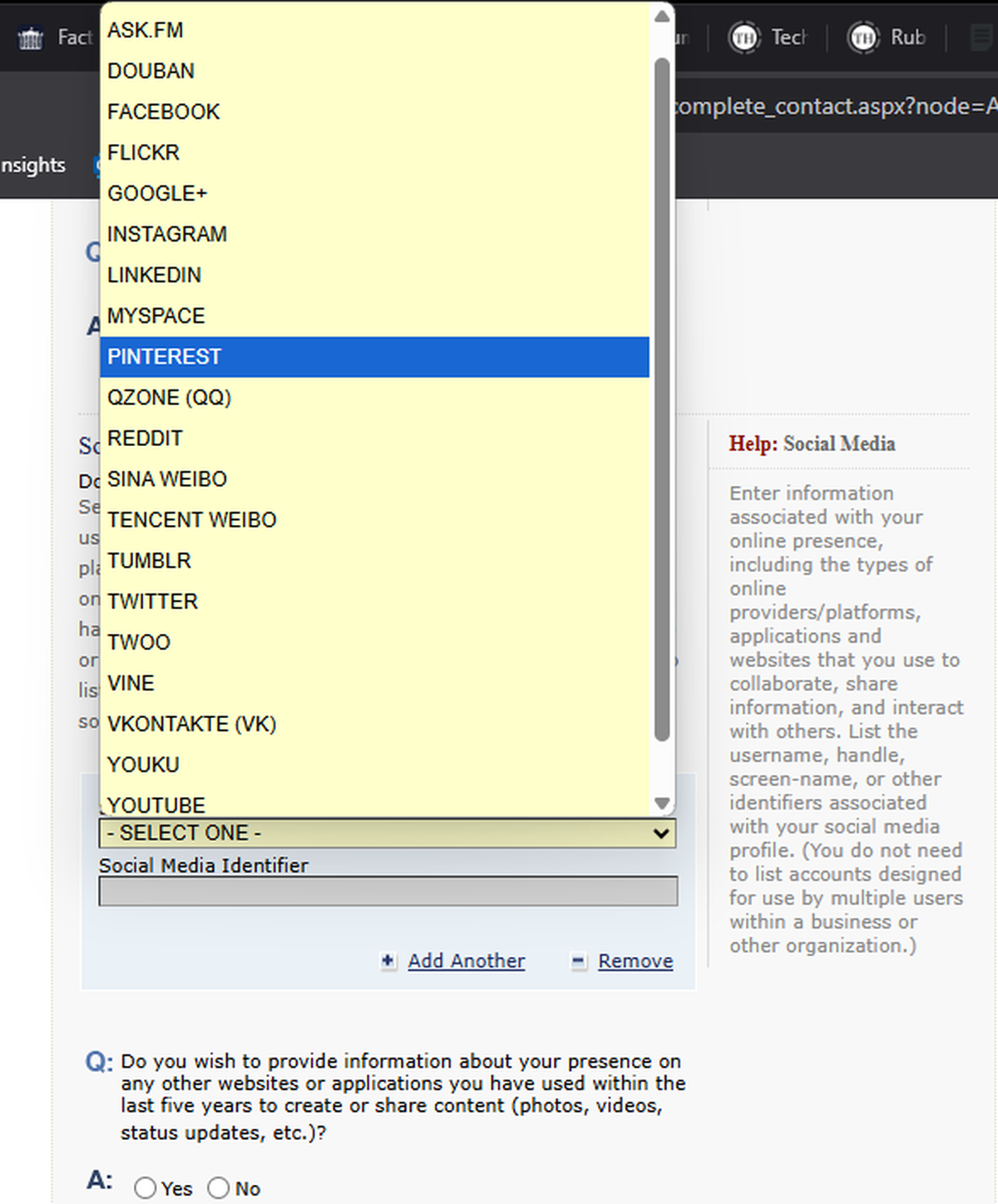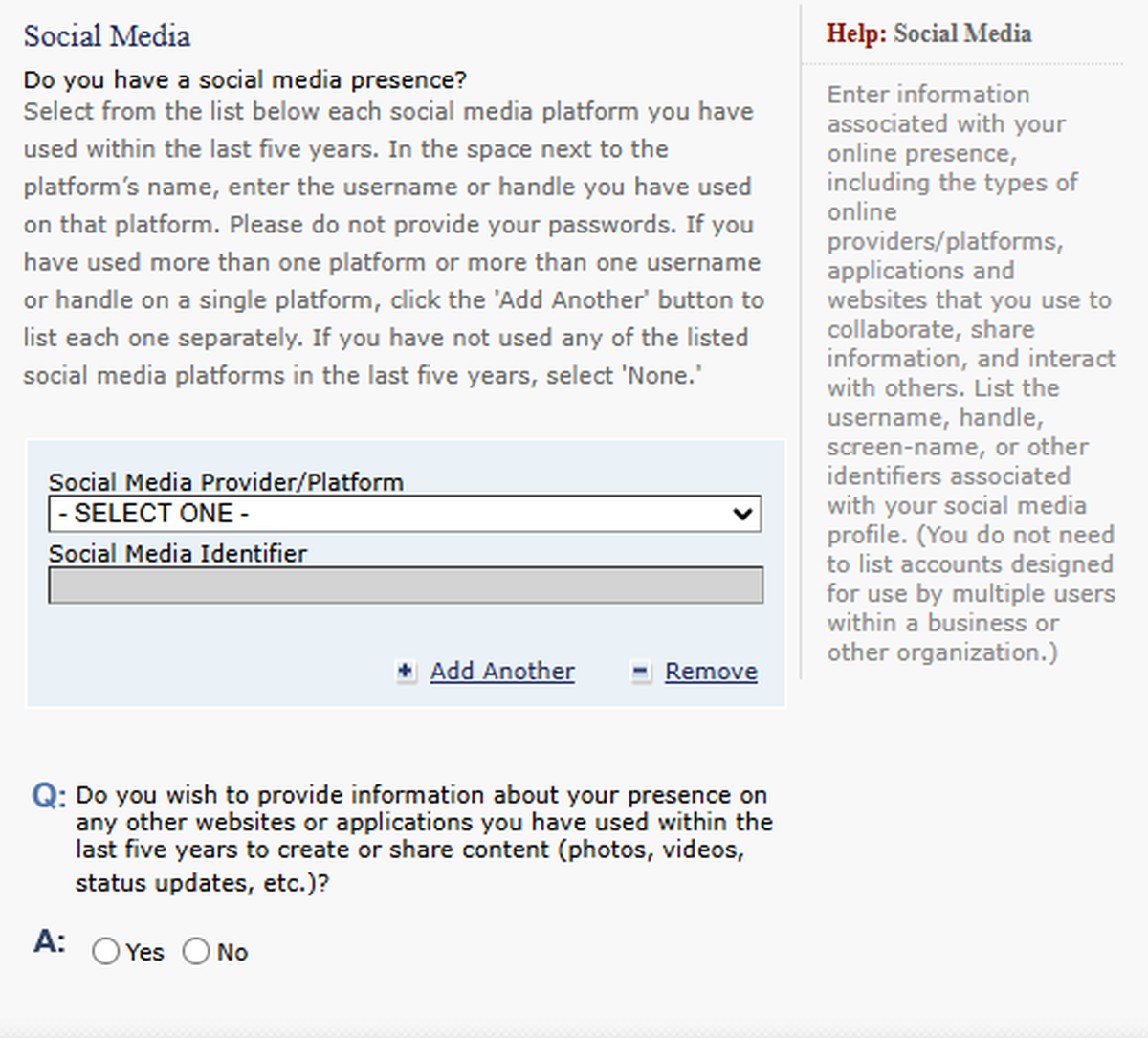The story so far: Foreign students hoping to study in the U.S. may soon face increased scrutiny as the Trump administration is considering taking measures to collect more information from the social media accounts of foreign student visa applicants.
Ahead of these changes, reports emerged that the scheduling of student visa interviews have been put on hold as officials worldwide await further guidance. This triggered panic among students worried that their education in the U.S. could be delayed or blocked.
What is the new social media vetting rule for U.S. visa applicants?
The U.S. Department of State defines a social media identifier/handle as “any name used by the individual on social media platforms including, but not limited to, Facebook, Twitter, and Instagram.”
A cable in late May that was signed by U.S. Secretary of State Marco Rubio and shared by the Politico outlet, ordered a temporary halt to scheduling visa appointments.
“Effective immediately, in preparation for an expansion of required social media screening and vetting, consular sections should not add any additional student or exchange visitor (F, M, and J) visa appointment capacity until further guidance is issued septel, which we anticipate in the coming days,” Mr. Rubio’s cable quoted by Politico stated, referring to telegram guidance that would be issued separately.
The collection of visa applicants’ social media handles is not a new measure. The U.S. Department of State noted that it updated its non-immigrant visa online application form (DS-160), the paper back-up version of the non-immigrant visa application (DS-156), and the online immigrant visa application form (DS-260), to collect applicants’ social media identifiers. The changes were implemented from May 2019, citing U.S. national security as a top priority.
However, Mr. Rubio’s latest cable suggests closer scrutiny of visa applicants’ social media posts in the future, and especially if they are foreign students. Foreign visa applicants heading to Harvard University may also face this treatment.
Why does the Trump administration want to vet social media handles?
The new updates come as the U.S. government seeks to clamp down on American universities where students are participating in anti-Israel or pro-Palestinian protests.
Because Israel is a U.S. ally, the administration has deemed many anti-Israel demonstrations and forms of protest to be a form of antisemitism (anti-Jewish bigotry) aimed at Jewish Americans, rather than a form of anti-Zionism (opposition to Israel’s statehood and violence against Palestinians). Many pro-Palestinian protesters on university campuses have been termed as Hamas supporters by conservative Americans.

A White House factsheet published this January saw Trump stating, “To all the resident aliens who joined in the pro-jihadist protests, we put you on notice: come 2025, we will find you, and we will deport you. I will also quickly cancel the student visas of all Hamas sympathizers on college campuses, which have been infested with radicalism like never before.”
The U.S. Department of State’s ‘Online Nonimmigrant Visa Application’ (DS-160) form has a sub-section dedicated to the applicant’s various social media handles that they can choose from a menu.

A screenshot shows how certain visa applicants are asked to list their social media handles
| Photo Credit:
U.S. Department of State website
There is a separate section for other platforms/websites that the applicants wish to flag or identify independently.

Visa applicants are also allowed to volunteer other social media handles and websites
| Photo Credit:
U.S. Department of State website
The social media platforms already mentioned on the DS-160 form include names such as Facebook, Twitter, Instagram, and YouTube, as well as Chinese options such as Douban, Qzone, Weibo, and others. Meanwhile, VKontakte is a Russian social media platform. The Trump-endorsed Truth Social, however, is not on this list.
Visa applicants are being asked to provide social media handles they have used in the past five years.
One point of focus appears to be Chinese immigration. In a recent press statement titled, ‘New Visa Policies Put America First, Not China,’ Mr. Rubio confirmed that government bodies would start “aggressively” revoking visas belonging to Chinese students, “including those with connections to the Chinese Communist Party or studying in critical fields.”
What can foreign students do to safeguard their visa application?
First and foremost, carry out a social media audit of your own. This means making a list of all your accounts to make sure no key platforms are left out. Delete — not deactivate — inactive accounts or nearly forgotten handles you have not accessed in more than five years, to avoid confusion. Carry out this step as early as you can, because some social media companies keep even deleted accounts visible for 30-90 days to prevent fraudulent activity.
Next, compile a list of core social media identifiers — your existing usernames/handles — that you will submit as part of your visa application. Never share your passwords with others.
You can then choose whether to lock your social media accounts or not. While it might be natural for minors, privacy-minded users, or non-professional visa applicants to have private accounts, it will arouse suspicion if a major influencer or public figure with thousands of followers suddenly locks their official account before their visa application. Make the choice that fits your privacy requirements.
After this, be sure to vet your own social media content. Be on the lookout for content you posted in the past that is outdated, inaccurate, offensive, abusive, or glorifies criminal activity. Also check your replies, ‘likes’, and uploaded media for any content that could hurt your visa application. Take note of accounts you follow or interact with to ensure that they are in compliance with international laws.

You may also want to check content that does not strictly count as social media activity, such as your YouTube comment history.
You may feel strongly about potentially taking down content related to social causes that are important to your heart. Make an informed choice that aligns with your personal position.
Foreign students hoping to obtain a visa to study in the U.S. should stay in touch with their universities and international admissions officers in order to learn the latest updates.
Published – May 31, 2025 11:33 am IST


